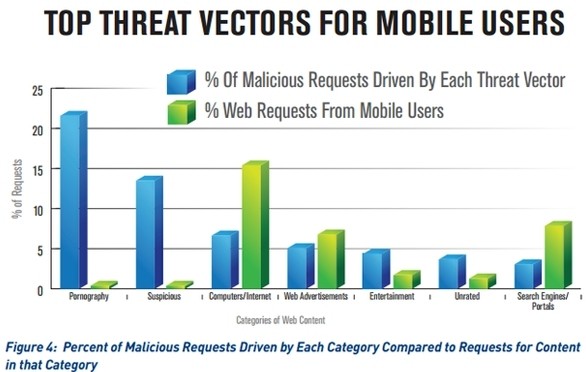A new report from web security provider Blue Coat Systems reveals that Google’s Android platform is quickly becoming a key target for mobile cyber attacks. These cyber criminals are fine-tuning their abilities to compromise the OS’ wide range of flavors, making it more difficult for corporate IT departments to keep pace with the ever-evolving platform.
Over the past six months, the company said they blocked a growing number of unique malicious Android applications including a root exploit and various rogue software. We are told that 40 percent of malware was delivered via malnets, described as distributed infrastructures within the Internet built and maintained for the purpose of distributing malware. The company was just off their mark as they predicted that nearly two-thirds of all new attacks would come from malnets in 2012.

The company also outlined the top threat vectors for mobile users. According to a statement from Blue Coat, porn sites were the most dangerous web destination for those surfing from a handheld. The good news, however, is that people visit porn sites on their mobile device less than one percent of the time.
It’s rather interesting when you consider the fact that porn websites were one of the top sources for malware when it first hit the Internet. That threat for desktop users has since declined significantly as attackers have moved to other outlets to spread malicious code. Targets like search engines and social networks offer more potential victims.
https://www.techspot.com/news/51629-android-continues-to-be-a-key-target-for-mobile-malware.html